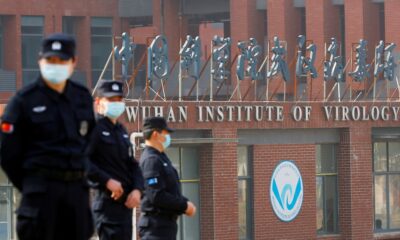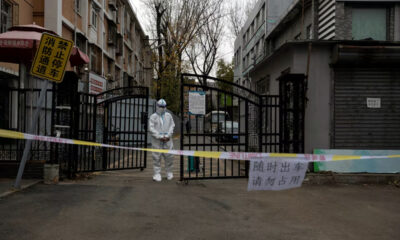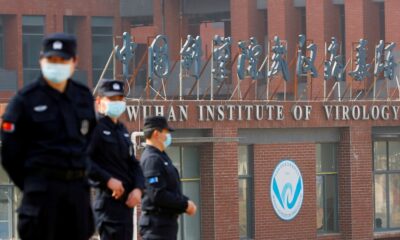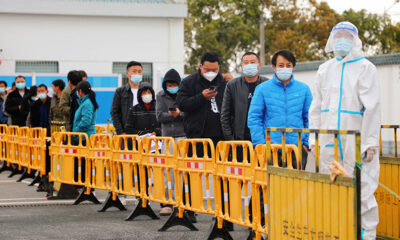COVID-19
India’s richest state suffers surge in COVID-19 cases
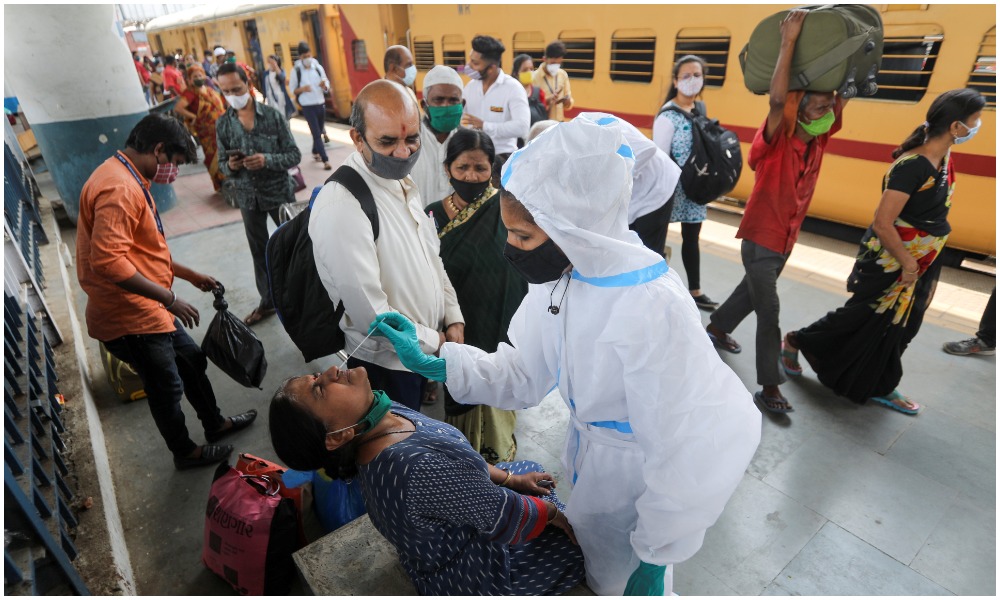
New coronavirus infections in India rose by the most in more than three months as a second wave of the epidemic gathered momentum, with Maharashtra, the country’s richest state, accounting for two-thirds of the latest daily tally, Reuters reported.
Home to India’s commercial capital Mumbai, the western state reported 23,179 of the country’s 35,871 new cases in the past 24 hours, and the fast-spreading contagion in major industrial areas raised risks of companies’ production being disrupted.
India’s total cases stood at 11.47 million, the highest after the United States and Brazil. Deaths rose by 172 to 159,216, according to health ministry data released on Thursday.
The country’s first wave peaked in September at nearly 100,000 cases a day, with daily infections hitting a low of just over 9,000 early last month.
Reuters reported that cases have been rising in Maharashtra since the reopening of most economic activities in February. Mumbai’s suburban trains, which carry millions of people daily, also resumed services.
The state, of 112 million people, ordered a fresh lockdown in some districts and put curbs on cinemas, hotels and restaurants until the end of the month after infections rose to a multi-month high earlier this week
New cases have more than doubled in the past two weeks in Maharashtra’s industrial towns such as Pune, Aurangabad, Nashik and Nagpur, known for their automobile, pharmaceutical and textile factories.
“We have asked industries there to operate with minimum manpower as much as possible,” a senior Maharashtra government official told Reuters.
“Most of the IT companies have allowed their employees to work from home,” he said.
Hospital beds and special COVID-19 facilities were filling up fast, especially in Mumbai, Nagpur and Pune, said another state official.
Earlier this month, more than 80 percent of oxygen and intensive-care beds in Maharashtra were unoccupied.
Prime Minister Narendra Modi on Wednesday asked state leaders to quickly increase testing and expand vaccination to “stop the emerging second peak of corona”.
India has administered more than 36.5 million vaccine doses since starting its immunization drive in the middle of January.
Reuters also reported that in neighboring Pakistan, 3,495 people tested positive in the past 24 hours, the most daily infections since early December. Total cases rose past 615,000. Deaths rose by 61 to 13,717.
Pakistani minister Asad Umar said on Twitter that hospital beds were getting occupied fast, warning of stricter curbs if rules were not followed.
“The new strain spreads faster and is more deadly,” he said on Twitter, referring to the UK variant of the virus that has been found in Pakistan.
COVID-19
WHO declares end to COVID global health emergency

The World Health Organization said Friday that COVID-19 no longer qualifies as a global emergency, marking a symbolic end to the devastating coronavirus pandemic that triggered once-unthinkable lockdowns, upended economies and killed millions of people worldwide.
The announcement, made more than three years after WHO declared the coronavirus an international crisis, offers some relief, if not an ending, to a pandemic that stirred fear and suspicion, hand-wringing and finger-pointing across the globe, AP reported.
The U.N. health agency’s officials said that even though the emergency phase was over, the pandemic hasn’t finished, noting recent spikes in cases in Southeast Asia and the Middle East.
WHO says thousands of people are still dying from the virus every week, and millions of others are suffering from debilitating, long-term effects.
“It’s with great hope that I declare COVID-19 over as a global health emergency,” WHO Director-General Tedros Adhanom Ghebreyesus said.
“That does not mean COVID-19 is over as a global health threat,” he said, warning that new variants could yet emerge. Tedros noted that while the official COVID-19 death toll was 7 million, the real figure was estimated to be at least 20 million.
Tedros said the pandemic had been on a downward trend for more than a year, acknowledging that most countries have already returned to life before COVID-19.
He bemoaned the damage that COVID-19 had done to the global community, saying the pandemic had shattered businesses, exacerbated political divisions, led to the spread of misinformation and plunged millions into poverty.
When the U.N. health agency first declared the coronavirus to be an international crisis on Jan. 30, 2020, it hadn’t yet been named COVID-19 and there were no major outbreaks beyond China.
More than three years later, the virus has caused an estimated 764 million cases globally and about 5 billion people have received at least one dose of vaccine.
In the U.S., the public health emergency declaration made regarding COVID-19 is set to expire on May 11, when wide-ranging measures to support the pandemic response, including vaccine mandates, will end. Many other countries, including Germany, France and Britain, dropped most of their provisions against the pandemic last year.
When Tedros declared COVID-19 to be an emergency in 2020, he said his greatest fear was the virus’ potential to spread in countries with weak health systems.
Most recently, WHO has struggled to investigate the origins of the coronavirus, a challenging scientific endeavor that has also become politically fraught.
COVID-19
COVID-19 in Iran: Nearly 900 new cases, 24 deaths recorded

The Iranian health ministry announced on Sunday that more than 890 new cases of COVID-19 have been identified across the country during the past 24 hours, adding that 24 patients have died in the same period of time, Fars News Agency reported.
“A sum of 891 new patients infected with COVID-19 have been identified in the country based on confirmed diagnosis criteria during the past 24 hours,” the Iranian Health Ministry’s Public Relations Center said on Sunday, adding, “454 patients have been hospitalized during the same time span.”
The ministry’s public relations center said 611 people infected with COVID-19 are in critical condition.
COVID-19
China says 200 million treated, pandemic ‘decisively’ beaten

China says more than 200 million of its citizens have been diagnosed and treated for COVID-19 since it lifted strict containment measures beginning in November.
With 800,000 of the most critically ill patients having recovered, China has “decisively beaten” the pandemic, according to notes from a meeting of the ruling Communist Party’s all-powerful Politburo Standing Committee presided over by President and party leader Xi Jinping, AP reported.
China enforced some of the world’s most draconian lockdowns, quarantines and travel restrictions and still faces questions about the origins of the virus that was first detected in the central Chinese city of Wuhan in late 2019. Heavy-handed enforcement prompted rare anti-government protests and took a heavy toll on the world’s second-largest economy.
The official Xinhua News Agency quoted Xi as saying that policies to control the outbreak had been “entirely correct.” The abrupt lifting in November and December of the “zero COVID” policy that had sought to eliminate all cases of the virus led to a surge in infections that temporarily overwhelmed hospitals.
Case numbers have since peaked and life has largely returned to normal, although international travel in and out of China has yet to return to pre-pandemic levels.
China is now transitioning to a post-pandemic stage after a fight against the outbreak that was “extraordinary in the extreme,” Xinhua said.
The government will continue to “optimize and adjust prevention and control policies and measures according to the times and situations with a strong historical responsibility and strong strategic determination,” Xinhua said.
-
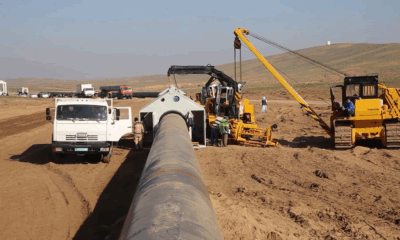
 Latest News5 days ago
Latest News5 days agoTAPI pipeline to reach Herat by end of 2025: Ministry
-

 Sport5 days ago
Sport5 days agoIPL 2025: Dharamsala match abandoned due to security concerns
-

 Regional4 days ago
Regional4 days agoIndia says military stations attacked by Pakistan drones and missiles
-
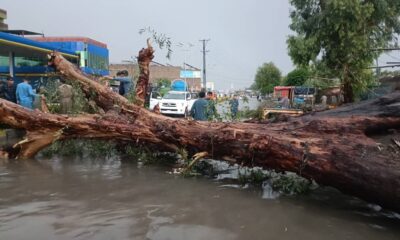
 Latest News4 days ago
Latest News4 days agoOne dead, dozens injured as powerful storm strikes Jalalabad, Afghanistan
-

 Latest News4 days ago
Latest News4 days agoEx-Afghan deputy speaker Qadeer back in Kenyan court for criminal case
-
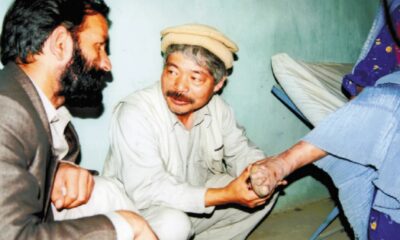
 Health4 days ago
Health4 days agoJapanese charity Peshawar-Kai to resume leprosy treatment in Afghanistan
-

 Sport4 days ago
Sport4 days agoIndia suspends Indian Premier League T20 cricket tournament
-

 Latest News3 days ago
Latest News3 days agoPakistan says India launched attack on Afghanistan, India denies


